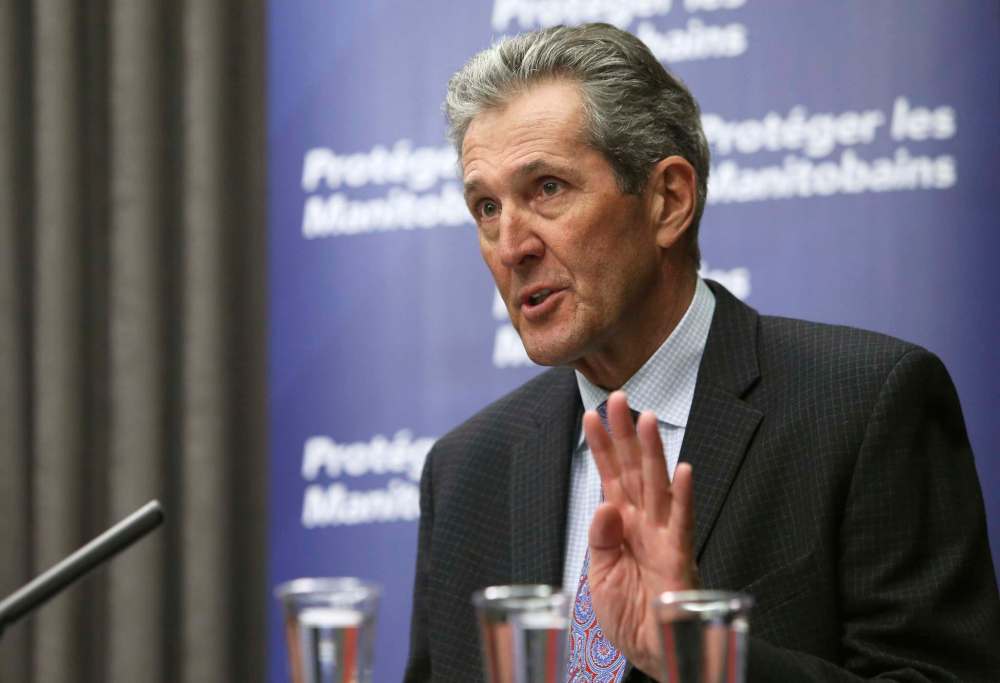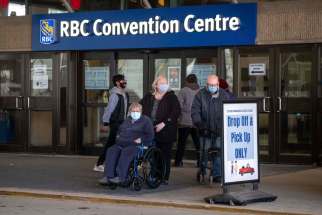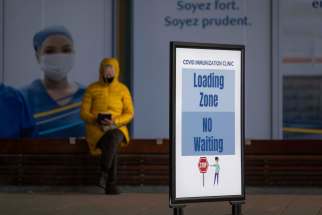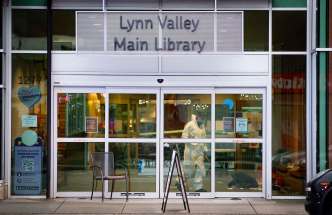Doctors applaud extra funding for surgeries, but say more needed
Read this article for free:
or
Already have an account? Log in here »
To continue reading, please subscribe:
Monthly Digital Subscription
$0 for the first 4 weeks*
- Enjoy unlimited reading on winnipegfreepress.com
- Read the E-Edition, our digital replica newspaper
- Access News Break, our award-winning app
- Play interactive puzzles
*No charge for 4 weeks then price increases to the regular rate of $19.00 plus GST every four weeks. Offer available to new and qualified returning subscribers only. Cancel any time.
Monthly Digital Subscription
$4.75/week*
- Enjoy unlimited reading on winnipegfreepress.com
- Read the E-Edition, our digital replica newspaper
- Access News Break, our award-winning app
- Play interactive puzzles
*Billed as $19 plus GST every four weeks. Cancel any time.
To continue reading, please subscribe:
Add Free Press access to your Brandon Sun subscription for only an additional
$1 for the first 4 weeks*
*Your next subscription payment will increase by $1.00 and you will be charged $16.99 plus GST for four weeks. After four weeks, your payment will increase to $23.99 plus GST every four weeks.
Read unlimited articles for free today:
or
Already have an account? Log in here »
Hey there, time traveller!
This article was published 31/03/2021 (1715 days ago), so information in it may no longer be current.
Premier Brian Pallister says his government will invest $50 million to reduce the “pandemic pileup” of Manitobans waiting for surgeries. The need, however, may be twice that, says a report commissioned by Canada’s doctors.
“Each delay means a Manitoban is hurting while they wait,” Pallister said at a news conference Wednesday.
He acknowledged it’s not a new issue, but said the pandemic has made the situation worse.

Before the second wave of COVID-19 infections overwhelmed Manitoba hospitals late last year, there was already a backlog of more than 5,300 Manitobans whose elective and non-urgent procedures had been postponed in the spring to free up hospital resources.
In October, a study conducted for the Canadian Medical Association by the consulting firm Deloitte, estimated Manitoba would need $68 million to clear its pandemic backlog of surgeries.
The 37-page report, “Clearing the Backlog — the Cost to Return Wait Times to Pre-Pandemic Levels”, looked at six procedures — coronary artery bypass graft, cataract surgery, hip and knee replacement and MRI and CT scans — to see how they were affected by COVID-19 and what it would take to return their wait times back to pre-pandemic levels. Six months ago, it estimated that an additional $1.3 billion in funding was required across Canada to meet the pent-up demand that grew during the spring, combined with the lessened ability to treat patients. Manitoba would need to spend an additional $68 million.
Since that study, Manitoba’s “pandemic pileup” — as Pallister often refers to it — has doubled to more than 10,000 postponed surgeries.
In November alone, an estimated 2,700 operations and procedures were postponed to free up health care staff for redeployment.
“COVID-19 has challenged our health-care system and created a pandemic pileup of delayed surgeries and procedures,” the premier said at his solo news conference Wednesday, without Health Minister Heather Stefanson. “We know that every delay represents someone who is suffering while they wait, which is why we’re making this major investment to address the surgical backlog and get Manitobans the care they need sooner,” Pallister said.
The $50-million allocation will be included in the provincial budget, which will be unveiled April 7. The funding is aimed at cutting wait times for priority surgeries and services, as well as hip, knee and cataract procedures. More details will be announced after the budget is released, said Pallister, who couldn’t offer any specifics of how the $50 million will be allocated.
“We can whittle away at those wait times. I am not suggesting that we’re going to get them down to zero overnight… but if we can at least address this pandemic pileup… then this is going to make sure that we lessen the pain (of people waiting.)”
The $50-million allocation is a good start, Doctors Manitoba said Wednesday.
“This is a very good start towards catching up on the thousands of patients who have had to wait for their procedure because of this pandemic,” the organization representing physicians in the province said in an email. “We recommended a special investment to government to address the growing backlog, and we look forward to working together for those Manitobans still waiting for care.”
Manitobans still need to hear how the province will address the surgical backlog, NDP health critic Uzoma Asagwara said.
“The premier’s funding announcement today was sorely lacking in terms of detail,” she said. “It doesn’t really instil confidence when there’s not a clear plan attached to that.”
Constituents waiting for surgery — not just hip and knee replacements, scans and cataract surgery — are waiting to hear when it’s their turn, said Asagwara, who has a nursing background.
“We need more information from the minister of health,” she said.
The premier repeated his demand for a long-term commitment from the federal government to boost health care funding.
“Health care is the number one issue for Canadians and that has only been underscored by the COVID-19 pandemic,” added Pallister.
“While we are making significant investments to address the issue of wait times here in Manitoba, we continue to call on the federal government to come to the table as a true, reliable funding partner on health care. Short-term promises are not enough to address the systemic, long-term problem of ever-increasing health-care wait times in this country.”
Provinces and territories pay for nearly 80 per cent of health-care as the federal share declines. The Manitoba government supports the call for the federal government to increase its contribution toward health-care costs to 35 per cent, which will help further reduce wait times, Pallister said.
carol.sanders@freepress.mb.ca
History
Updated on Wednesday, March 31, 2021 3:18 PM CDT: Adds quote
Updated on Wednesday, March 31, 2021 6:25 PM CDT: Full write-thru with extra info, quotes, pictures, formatting, new headline





